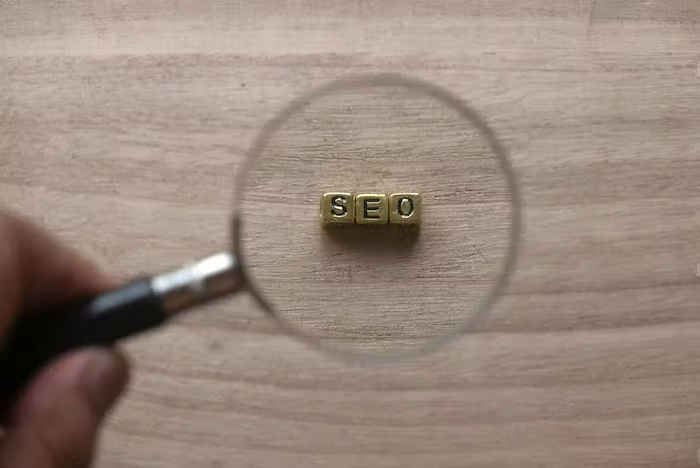The Ultimate Guide to Crafting On-Page SEO Titles For Success

If you’re looking to take your online presence to the next level, crafting informative and catchy titles is a great way to do it. Here’s an ultimate guide on how to go about it.
Introduction: What is a Page Title in SEO?
A page title in search engine optimisation (SEO) is the first thing that appears on a web page when someone types “www.” into a Google search console. The page title is what appears as a clickable link on search engine results pages.
Many factors determine whether a page will rank higher in search engine results pages (SERPs), including its title.
A page’s title can be one of the most important pieces of information on a web page and can help determine whether someone will click through to an offer or article from that site.
How On-Page SEO Titles Work In Google?

Google has been using one word to define a website for the past ten years, and that word is “site”. This is because Google is extremely interested in what people on the internet see when they search for a specific keyword or phrase.
So, if you want your website to rank higher in the Google search console, you must ensure your title matches this interest.
A website’s title should be long and descriptive, giving users an idea of what they will find on your site when they type in that keyword or phrase.
You also want to make sure it is easy to remember and use, so people can find your site quickly while surfing the internet.
If all of these things are done correctly, you should see a drastic increase in the number of results returned for your keywords when you search on Google.
Why Are SEO Page Titles Important?
SEO is all about ranking your website in search results. You’re better off with good English titles for your pages because people will see the title and click on it to learn more.
Good titles are also important for SEO because they help you stand out from other websites. If your website’s title isn’t catchy enough, people may not even look at it when they try to find information on SEO.
In addition, good titles can also be helpful when creating content for your website.
People who want to read your article might not be as interested in reading the entire thing if they only see the title. You’ll get more readers and make more money from online advertising.
How To Create SEO Page Titles That Stand Out

Watch Your Title Length.
The title of your website should be the first and only thing you put on your homepage. This is where you will give your visitors a clear indication of what your website is all about.
Your website’s title should be no less than 128 characters long, with no spaces between the words.
If your website’s title is shorter than 128 characters, you may need to emphasise the SEO value of your titles.
When writing SEO titles that are longer than 512 characters, you can break them into two or three parts so that they’re easier to read.
Keep in mind that when creating SEO titles, it’s important to ensure they are keyword rich. Titles that are not keyword rich can easily fall out of search results and lose their ranking potential.
Write For The User.
If your website is about selling something, consider creating a page title that stands out from the rest.
When creating a new website, it’s always important to consider what will draw users in. One way to do this is by creating a strong page title that stands out from the rest on your site.
Some possibilities for good page titles include: “The Best SEO Tips for Your Website” or “The Top Tips for Optimising Your Site”.
Any title that grabs users’ attention will help ensure they stick around and visit your site again.
Give Every Page A Unique Title.
There are two ways to create great SEO page titles.
One way is to use keyword-rich titles that are easy to remember and search for on various websites.
The other way is to use a less common or specific keyword phrase that is harder to find but still valuable for SEO.
One way to do this is by using catchy, memorable phrases that people will easily remember and use when creating content on your pages.
Another great way to create target keyword-rich titles is by purchasing a domain name related to one of your core marketing objectives or topics.
This will give you a powerful site title that can be used on any page you create for SEO purposes.
Avoid Repetitive Or Keyword Stuffing.
When it comes to your SEO, you should be able to create unique and interesting titles that stand out from the rest.
Try something different every time and see what works best for you. Don’t be afraid to experiment a bit, either! The more variety you have, your site will look and perform better.
Too many high-keywords-title titles will likely work against you in search engines. Keep things simple and focus on one or two relevant keywords per title so readers can easily find what they’re looking for.
And don’t forget to use target keyword density when creating titles – too many terms will tend to sound confusing and difficult to read.
Why Won’t Google Use My Title Tag?
Google has many rules in place when it comes to using the title tags of websites.
One rule is that the website’s name must be the first word in the Title Tag.
Another rule is that titles must be spelt correctly. If a site fails to meet either of these rules, it is not allowed to have a Title Tag.
Some people argue that Google does not use correct title tags because they are not very important for ranking engines.
Other people argue that Google does not have enough time to check all the titles and make sure they are spelt correctly so they can rank high.
This leaves many websites without a Title Tag vulnerable to being lower in search engine results pages (SERPs).

Conclusion
In conclusion, crafting on-page SEO titles for success is essential in any online marketing campaign.
Understanding how to create keyword-rich and catchy titles can increase your website’s search engine ranking and ultimately generate more leads and sales.
Was this article helpful? Let us know in the comments.
FAQ
How is a post title different from an SEO title?
Post titles are often given in a higher-case font to make them clearer. They are also used as the first word of a sentence in articles and on website descriptions.
SEO titles, on the other hand, are lowercase and usually used as the last word of a sentence. They can be used to identify specific sections on your website or for search engine optimisation purposes.
How to write an SEO title with an optimal width?
When writing an SEO title, it is important to ensure it is wide enough so people can easily read it. To do this, you should use a keyword-rich title that is easily searchable.
You should also ensure the term is used in a sentence or two throughout the article.
Should you add your brand to the SEO title?
There are pros and cons to including one’s brand in a search engine title.
For one, it can help attract more Google traffic, as people might be more likely to click on a page with a brand name if they believe that the company is reputable.
Additionally, some people may find it beneficial to have a recognisable name associated with their business to grow online traffic and recognition.
It all comes down to what feels right for you as a business owner. If you’re not sure whether or not adding your brand name should be included in your SEO title, give it some thought and decide what would benefit your business most.
